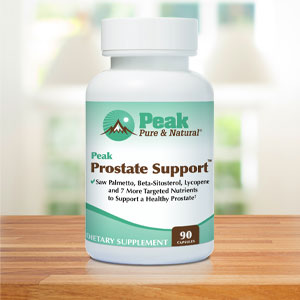Get Easy Health Digest™ in your inbox and don’t miss a thing when you subscribe today. Plus, get the free bonus report, Mother Nature’s Tips, Tricks and Remedies for Cholesterol, Blood Pressure & Blood Sugar as my way of saying welcome to the community!
Why probiotics may be the next big thing for lower blood pressure

A growing body of research has found that the health of your gut reaches far beyond its parameters…
Just a few years ago, the European Society of Cardiology, using genetic data from 422,000 individuals, revealed a link between higher levels of 11 bacteria that were associated with a total of 28 health and disease outcomes, including chronic obstructive pulmonary disease, high blood pressure, high cholesterol and BMI. In one example, they found that the higher the level of Ruminococcus bacteria, the greater the risk of high blood pressure.
Another study showed major disturbances in the gut microbiome of patients suffering from heart disease, and that these alterations may start many years before onset of heart disease symptoms and diagnosis.
High blood pressure can precede heart disease, so getting it under control is one of the most important steps in protecting heart health.
Could it be as simple as balancing your microbiome with probiotics?
Two probiotic strains could manage blood pressure
High blood pressure rates are rising worldwide, affecting about 40 percent of the world’s adults. Prior studies have found a link between these rising rates and an increased consumption of sugar.
High sugar consumption likely boosts blood pressure through increased insulin resistance or salt retention, among other mechanisms. It can also hurt the gut microbiome by blocking good bacteria and promoting the growth of bad bacteria.
A team of researchers in China decided to test two probiotic strains — Bifidobacterium lactis and Lactobacillus rhamnosus — on mice that developed high blood pressure after consuming water mixed with fructose. They measured the animals’ blood pressure every four weeks over 16 weeks. And what they found was encouraging…
The fructose-fed mice that received either probiotic showed significantly lower blood pressure than those fed fructose and not treated with probiotics.
Also, the researchers found no difference between the blood pressure readings of the fructose-fed mice that received probiotics and a control group of mice that only drank water. This suggests probiotics would maintain normal blood pressure levels, says computational biologist Dr. Jun Li at the City University of Hong Kong.
“Accumulated evidence supports an antihypertensive effect of probiotics and probiotic fermented foods in both in vitro and in vivo experiments,” Li says. “So we believed that the dietary intake of probiotic foods would well supplement traditional hypertension treatment.”
Sugar’s deleterious effect on your microbiome
As part of their study, the researchers used genetic sequencing to explore links between altered gut microbiota and the change in blood pressure. They found a high-fructose diet in the mice led to growth of Bacteroidetes and a decrease in Firmicutes bacteria, while treatment with probiotics returned those populations to control group levels.
There were new microbial signatures associated with blood pressure as well. High levels of Lawsonia and Pyrolobus bacteria, and low levels of Alistipes and Alloprevotella, were connected with lower blood pressure.
The next step for the researchers is a large clinical trial to see if the protective effect of probiotics extends to humans. “Probiotics present a promising avenue in preventive medicine, offering potential in regulating hypertension and reshaping our approach to cardiovascular health,” Li says.
But with the growing evidence of the gut microbiome’s impact on whole body health, there’s absolutely no harm in seeking out these two probiotic strains. Not only may they help with your blood pressure, but they’ll help bring balance to your gut microbiome.
Luckily, Bifidobacterium lactis and Lactobacillus rhamnosus are common probiotic strains. Both of them are present in abundance in many fermented food sources. Specifically, Bifidobacterium lactis can be found in yogurt, cheese, cottage cheese and buttermilk. And Lactobacillus rhamnosus can be found in kefir, yogurt, kimchi, sauerkraut, tempeh and miso.
Of course, probiotics are also available in supplement form — and don’t forget to feed them prebiotics to help them do their job even better.
Editor’s note: There are perfectly safe and natural ways to decrease your risk of blood clots including the 25-cent vitamin, the nutrient that acts as a natural blood thinner and the powerful herb that helps clear plaque. To discover these and other secrets of long-lived hearts, click here for Hushed Up Natural Heart Cures and Common Misconceptions of Popular Heart Treatments!
Sources:
Two probiotics identified as promising hypertension treatments — EurekAlert!
Bifidobacterium lactis — International Probiotics Association
Lactobacillus Rhamnosus 101: Sources, Benefits, and Uses — Physician’s Choice
Can fermented or probiotic foods with added sugars be part of a healthy diet? — ISAPP














